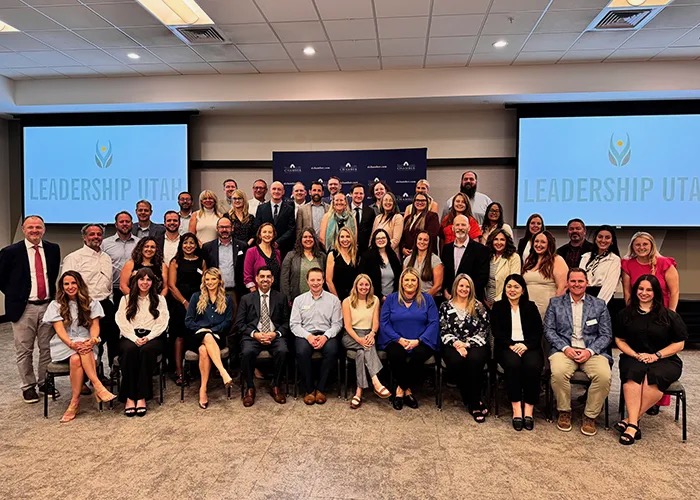On Thursday, Nov. 4, the Salt Lake Chamber and the State of Utah will host Utah’s Business Diversity Summit, a conference aimed at educating business leaders on ways to create more diverse and inclusive workspaces.
By implementing Diversity, Equity and Inclusion practices, businesses can not only become more efficient and equitable, but they can also become more innovative and turn a greater profit. Diversity is not just good business: it is good for business.
Diversity benefits employees
Employees who work in diverse spaces experience a better workplace environment, making it easier for them to be more creative. One study found that corporate policies that promote more pro-diversity cultures, specifically the treatment of women and minorities, enhance future innovative efficiency. Diversity breeds teamwork and ingenuity, in turn creating happier employees.
These diverse spaces also help companies hire the best employees in the first place.
“If you want to be innovative, you should embrace a wide range of qualified, talented people to work for you,” Dr. Richard Warr, professor of finance business management at North Carolina State University said. “Cast your net as wide as possible, then hire the people with the best skills.”
Diversity benefits companies
Implementing DEI policies in the office also boosts business. According to the McKinsey & Company Diversity Wins report, ethnically diverse leadership teams are 36% more likely to be profitable and companies with diverse boards are 43% more likely to experience higher profits.
According to the report, the case for inclusion and diversity in the workplace is stronger than ever:
“For diverse companies, the likelihood of outperforming industry peers on profitability has increased over time, while the penalties are getting steeper for those lacking diversity.”
Diversity benefits the community
Perhaps the most important reason for establishing Diversity, Equity and Inclusion practices is the precedent it sets. Setting examples of inclusion shows the communities that the companies they operate within matter to them. The act strengthens businesses’ core values and shows consumers that the organization is committed to positive change.
“You demonstrate value by your actions — by what your organization looks like or what you support, or how you engage with the community,” said Dr. Tony Byers, D&I director at the Cornell Center for Advanced Human Resource Studies. “And if you’re not doing those things, I think what you will find is that your consumer base will choose other options.”
Dr. Byers will be a keynote speaker, along with Governor Spencer J. Cox; Derrick Johnson, president & CEO, NAACP; and Scott Anderson, president and CEO, Zions Bank; at the upcoming Business Diversity Summit. To hear from them and other DEI specialists, register for the event here.

